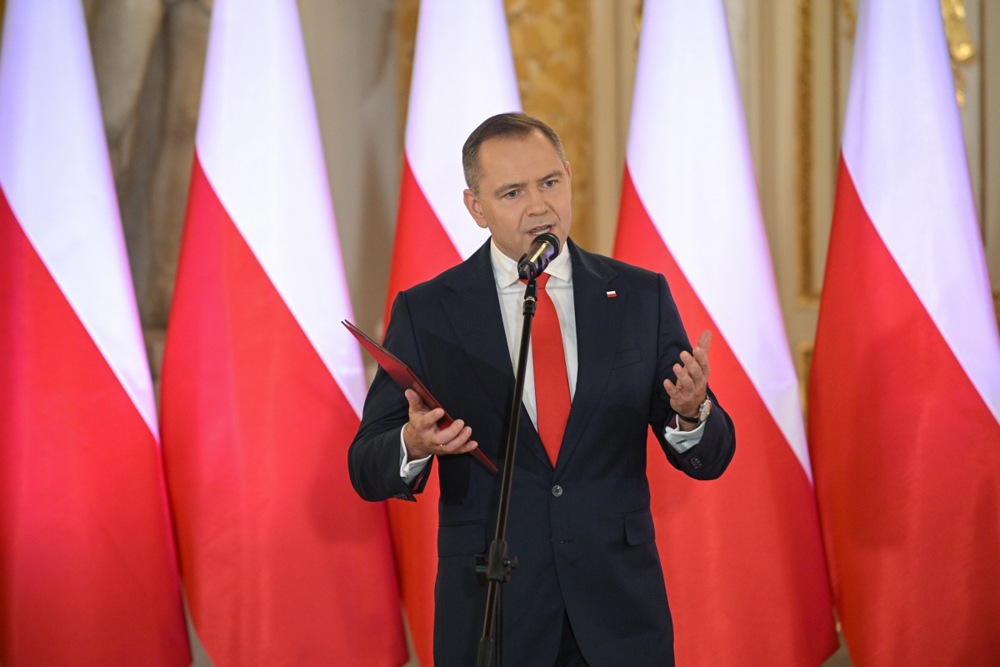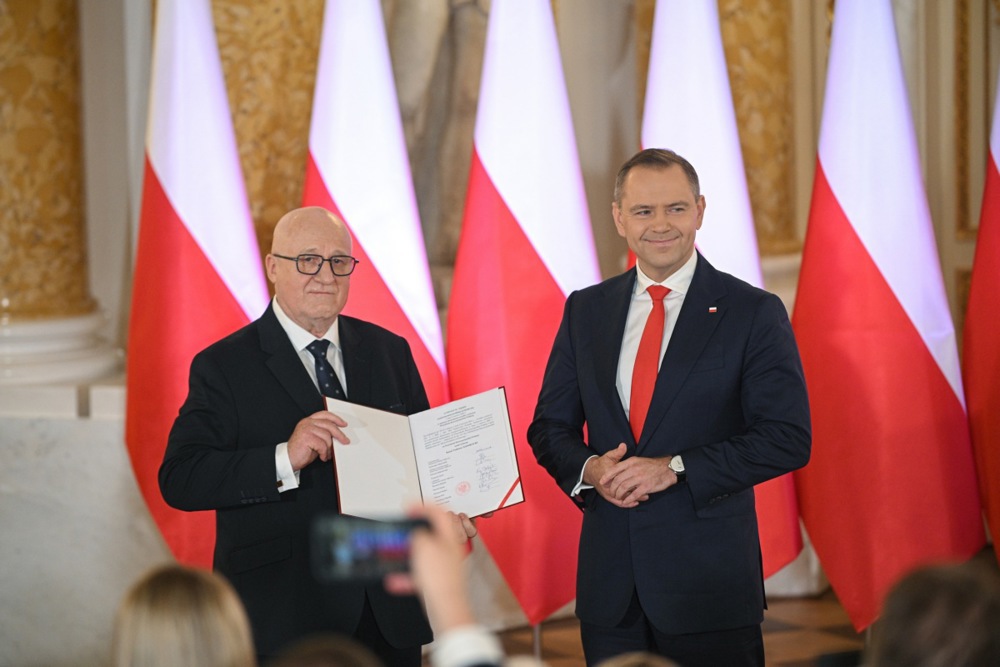Nearly 3 in five Poles (57 per cent) say they do not trust their country’s courts, the highest level ever recorded by the Polish polling agency IBRiS.
Just over over one third (36 per cent), meanwhile, say they trust the judiciary.
The poll shows distrust in courts has risen markedly since Donald Tusk’s centre-left ruling coalition came to power in late 2023.
Tusk promised to restore the independence of Poland’s courts and improve their efficiency after controversial judicial reforms by the former Conservative (PiS) government.
However, distrust in the courts is now significantly higher than when the PiS left office in 2023. Then, 41 per cent distrusted courts, while 38 per cent trusted them.
IBRiS has regularly conducted polls on public trust in institutions since 2016. These findings were commissioned by the Polish daily newspaper Rzeczpospolita and published on September 20.
During its eight years in power (2015-2023), the PiS attempted to reform the justice system to make judges more accountable, remove remaining vestiges of the country’s Communist past, and increase courts’ efficiency and effectiveness.
During the transition from Communism, judges were permitted full autonomy and immunity from prosecution. There was no purge of judges inherited from the previous system.
This caused widespread frustration over failed attempts to hold former Communist officials to account in court for martial law and other crimes. There were also accusations of corruption in the judiciary and excessive length and complexity in legal proceedings.
The PiS attempted to tackle this by bringing under parliamentary control the National Council for the Judiciary (KRS), which is responsible for recommending judicial appointments.
It also introduced a disciplinary chamber within the Supreme Court to hold judges accountable for their actions, and assign judges in a transparent, random fashion for each court case.
The liberal and Left opposition argued the reforms would bring the judicial system under government control. European institutions including the European Commission and the European Court of Justice (ECJ) agreed.
This led to a dispute between the EU and Poland, resulting in several ECJ verdicts against Poland, and the European Commission’s decision to withhold Poland’s post-pandemic and structural funds.
The PiS government consistently rejected this criticism, arguing parliamentary control of judicial appointments exists in well-established EU states such as Germany and Spain. EU treaties give member states the right to decide how their judicial systems are structured, it said.
However, the European Commission and the ECJ responded that the Lisbon Treaty made the rule of law and independence of the judiciary key values of the EU, which EU institutions are required to uphold.
The PiS reforms were also questioned by some on the Polish Right, including the Confederation Party.
Confederation argued the judicial reforms had failed to shorten the length of legal proceedings, and failed to introduce local Justices of the Peace to lighten the burden on common courts.
When Tusk’s centre-left government came to powered in December 2023 it secured the release of frozen EU funds by declaring its intention to “restore the rule of law”.
The Tusk government’s attempts to overhaul the constitutional court and return the KRS to its previous state, where it was elected by judges, have foundered.
The PiS-aligned President Andrzej Duda refused to agree to the reforms. The Tusk government’s s use of non-legislative methods to change the system, such as replacing prosecutors and presidents of courts, have proved controversial and led to accusations the current government was following the same partisan route it had opposed when PiS was in office.
There has also been legal confusion, after the government argued hundreds of legal appointments recommended by the KRS and approved by the president were unlawful. Verdicts reached in cases involving these judges are now being challenged.
Tusk himself acknowledged last year that, in his efforts to restore democracy in Poland, he may sometimes take actions that will be “not fully compliant with the law”.
In January this year, a poll by SW Research commissioned by Rzeczpospolita, revealed that more Poles (35 per cent) thought the rule of law had worsened under the Tusk government than thought it had improved (24 per cent).
The latest IBRiS findings are in line with those results, and indicate public dissatisfaction is growing.
On coming into office in August, the PiS-aligned President Karol Nawrocki said he would establish a commission to look into judicial and constitutional reform. The Tusk government maintains that only its reform programme can secure the rule of law in Poland with the acceptance of Brussels.





